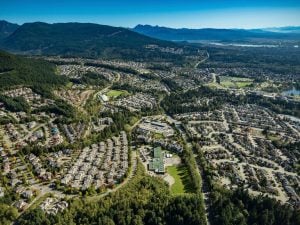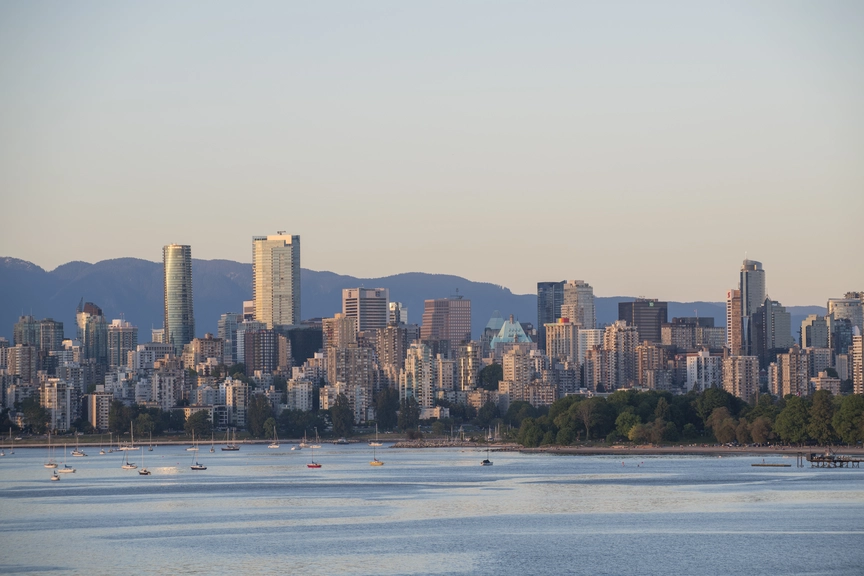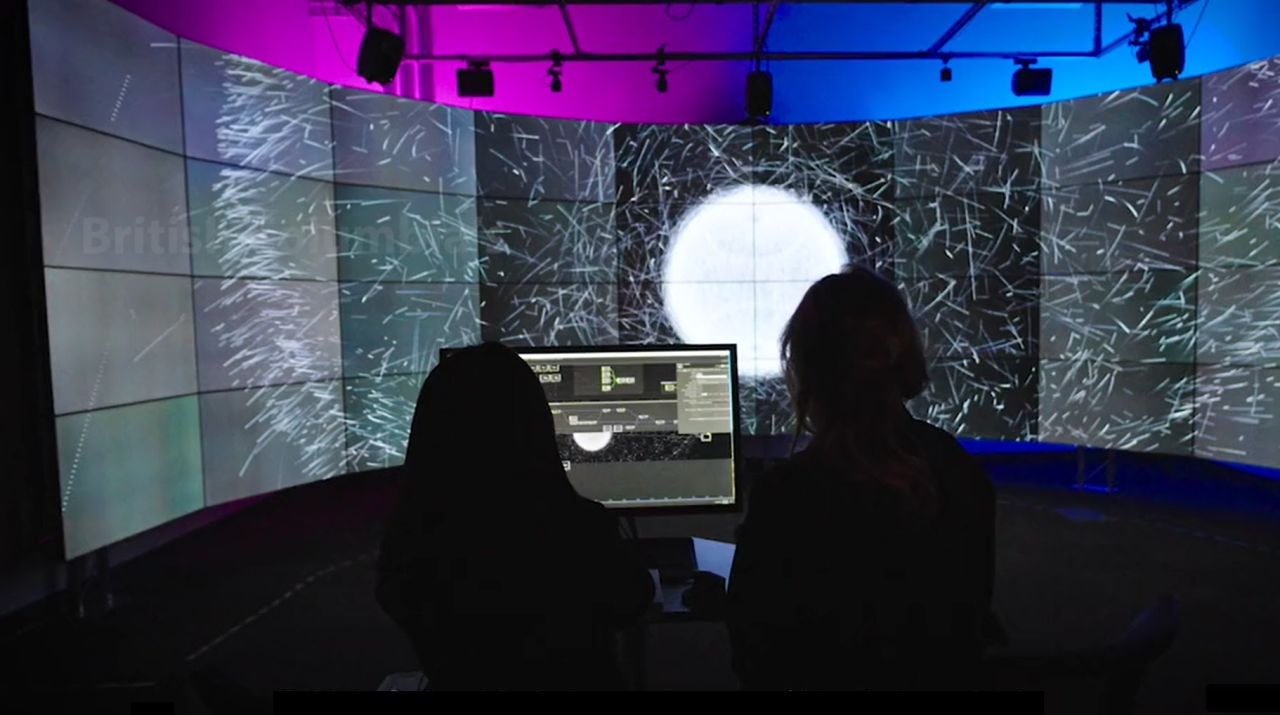不列颠哥伦比亚省的智慧城市
不列颠哥伦比亚省 (BC) 的温带气候、国际化城市和清洁的环境提供了吸引世界各地人们的优质生活。 随着城市化趋势的到来,资源管理和服务交付也面临着挑战。 不列颠哥伦比亚省的很多城市都在利用智能技术提高效率、改善民生。
City of Vancouver
作为不列颠哥伦比亚省智慧城市的领导者,温哥华市制定了宏伟的目标,即通过使用数据和连接技术来解决当地问题,实现城市的数字化转型。 该市制定了一项 数字战略 ,可以提高参与度,使人们更容易通过在线、移动和社交媒体与城市服务互动和访问城市服务。此外,它还旨在升级和扩展数字基础设施,并促进和加强温哥华的数字经济。它创建了 Van311,这是一个移动应用程序,允许公民随时随地提交有关涂鸦或破损路灯的服务请求。
 温哥华是加拿大第一个要求所有新房屋和开发项目安装电线的城市,以便为未来的电动汽车 充电站 做好准备。 该市还开展了一项计划,通过分析来自 1,000 辆城市车辆的数据来优化路线、减少怠速并实施节油策略,从而减少车辆怠速和燃料浪费。
温哥华是加拿大第一个要求所有新房屋和开发项目安装电线的城市,以便为未来的电动汽车 充电站 做好准备。 该市还开展了一项计划,通过分析来自 1,000 辆城市车辆的数据来优化路线、减少怠速并实施节油策略,从而减少车辆怠速和燃料浪费。
City of New Westminster
市政府实施了 智能新威斯敏斯特战略计划 ,并继续致力于通过不同方式追求创新,以成为世界公认的智能社区。 Bridgenet 是该市的暗光纤网络,供居民和企业使用,以实现数字解决方案,从而提高公民参与度、改善服务交付和访问。
该市还与新威斯敏斯特学区签署了 创新合作协议 ,以促进教育领域的数字创新。 这包括新媒体画廊,它为公众提供了一个由技术和艺术改变的现实。 该设施还包括一个新的学习实验室,这是一个专门的编程空间,包含越来越多的针对中小学生的复杂教学技术。
City of Nelson
尼尔森在 2017 年被智能社区论坛 (ICF) 评为 Smart21 城市之一。 Nelson 拥有 10,000 人口,利用技术与居民和游客进行交流。 它是智能库特尼斯数字移动平台提案中的城市之一,该提案将开发一个交通应用程序,向用户展示实时出行数据,包括道路安全问题、关闭、等待时间和自然灾害。
 尼尔森市还与塞尔柯克学院一起开发了 Selkirk-SME 应用研究和技术解决方案 (SMARTS) 计划,将中小型企业与地理空间和数字制造技术领域的应用研究专业知识联系起来。
尼尔森市还与塞尔柯克学院一起开发了 Selkirk-SME 应用研究和技术解决方案 (SMARTS) 计划,将中小型企业与地理空间和数字制造技术领域的应用研究专业知识联系起来。
City of Victoria
不列颠哥伦比亚省的首府由 13 个城市和农村城市组成,拥有 78 亿美元的高科技行业。 The South Island Prosperity Project is developing the Mobility Wellness Index, to measure the link between human health and how people move around in the city.

维多利亚州正在推进为当地大学生实施微型交通的计划,并开发一个数据共享平台来分析各种交通方式的使用情况。这些数据将与公共交通、渡轮系统、拼车服务和自行车共享,以优化路线并提高交通效率。
高贵林市
高贵林被 智能社区论坛 (ICF) 评为 2023 年全球 Smart21 社区之一,因其在利用技术和数据改善公共空间和提高生活质量方面的创新而受到认可。它是不列颠哥伦比亚省唯一的社区,也是加拿大六个获得此荣誉的城市之一。 高贵林 利用技术通过广泛的服务改善社区生活,包括在线电子服务、城市公园和设施的免费 Wi-Fi 以及 LED 路灯。
 自 2018 年以来,该市还实施了技术路线图,以促进创新和改善业务功能。 它优先考虑远程工作解决方案、保持物理距离的服务交付和增强的网络安全措施。 该市使用虚拟现实为员工和公众提供拟议开发项目的逼真演练,帮助他们直观地了解这些项目将如何融入社区。
自 2018 年以来,该市还实施了技术路线图,以促进创新和改善业务功能。 它优先考虑远程工作解决方案、保持物理距离的服务交付和增强的网络安全措施。 该市使用虚拟现实为员工和公众提供拟议开发项目的逼真演练,帮助他们直观地了解这些项目将如何融入社区。
Coquitlam 还使用交互式城市地图供居民查找分区信息、公用事业和财产数据,以及城市设施位置。 为了协助旅游业,在关键交通点还有社区信息中心和寻路信息。
从小城镇到大城市,不列颠哥伦比亚省都看到了利用技术提高效率和提高公民生活质量的好处。 公司和政府共同努力,展示他们在信息和通信技术 (ICT) 方面的专业知识。 由于超过 96% 的 BC 省家庭拥有宽带互联网接入,居民可以积极参与数字经济并促进不同社区的经济增长。在 X 和 LinkedIn 上关注我们,了解更多更新和行业趋势。
我们可以帮助
BC 省贸易与投资部有助于促进外国直接投资,并在世界各地的市场拥有贸易与投资代表处。联系与您临近的代表处,寻求在不列颠哥伦比亚省投资的支持。





